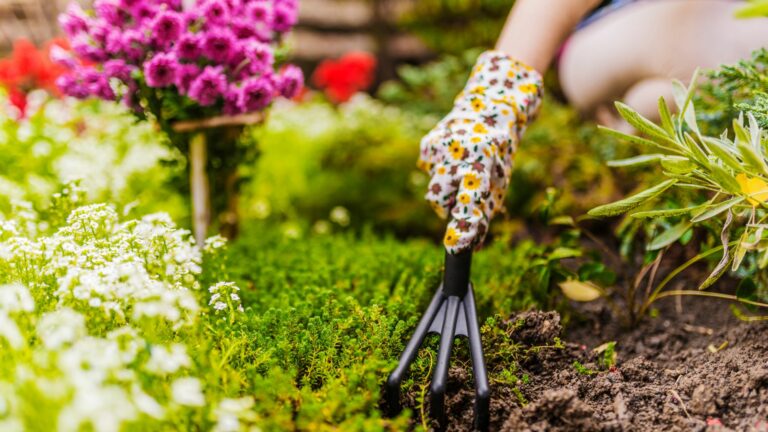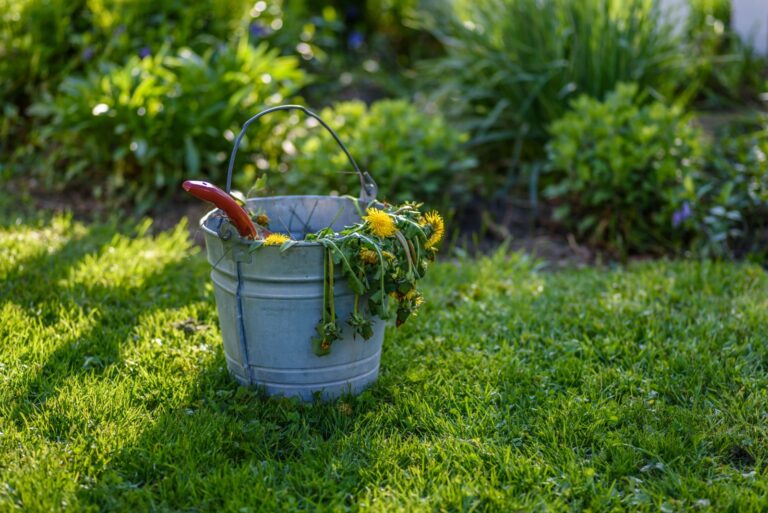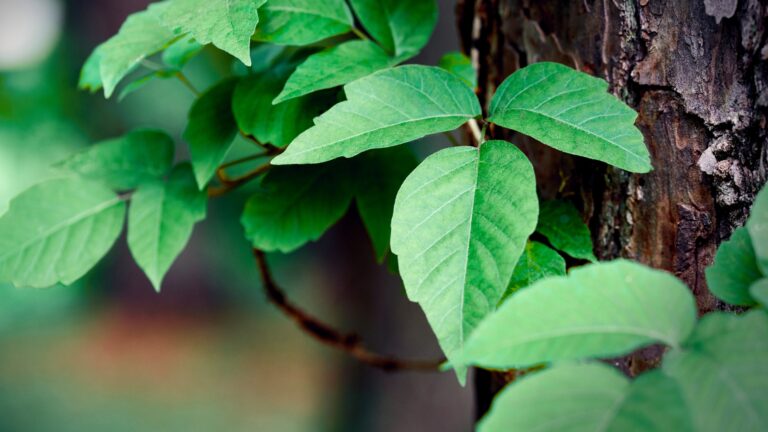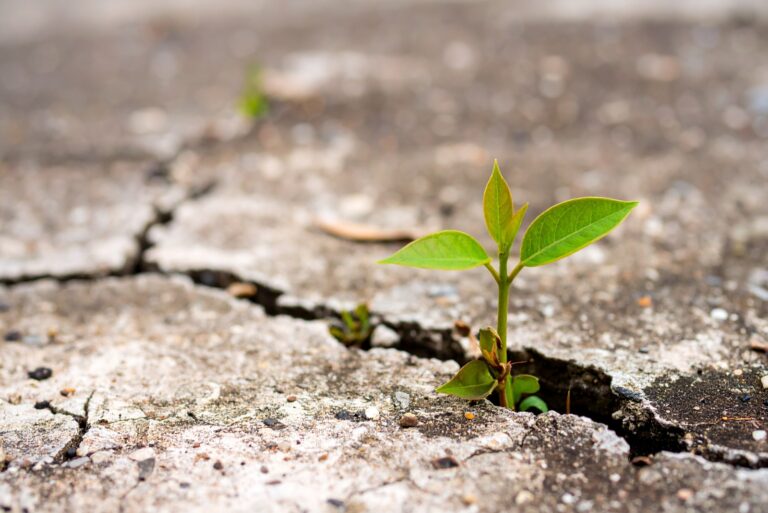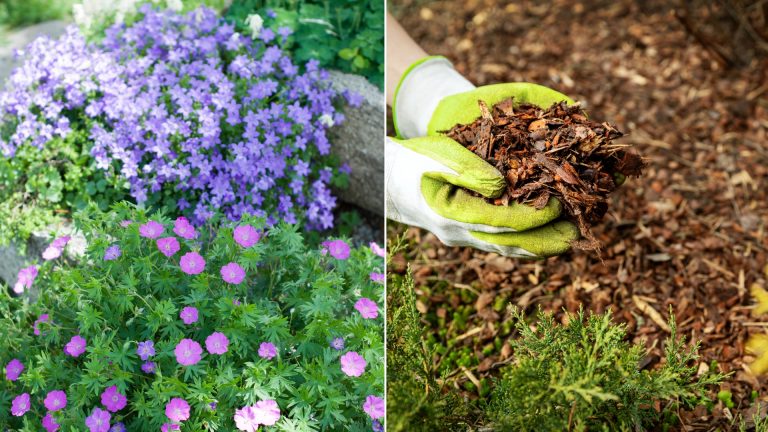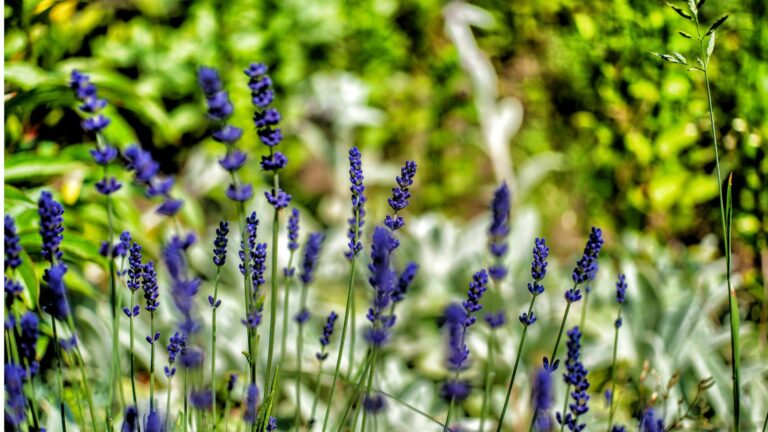Don’t Spend Money On Weed Killers, Use Vinegar Instead
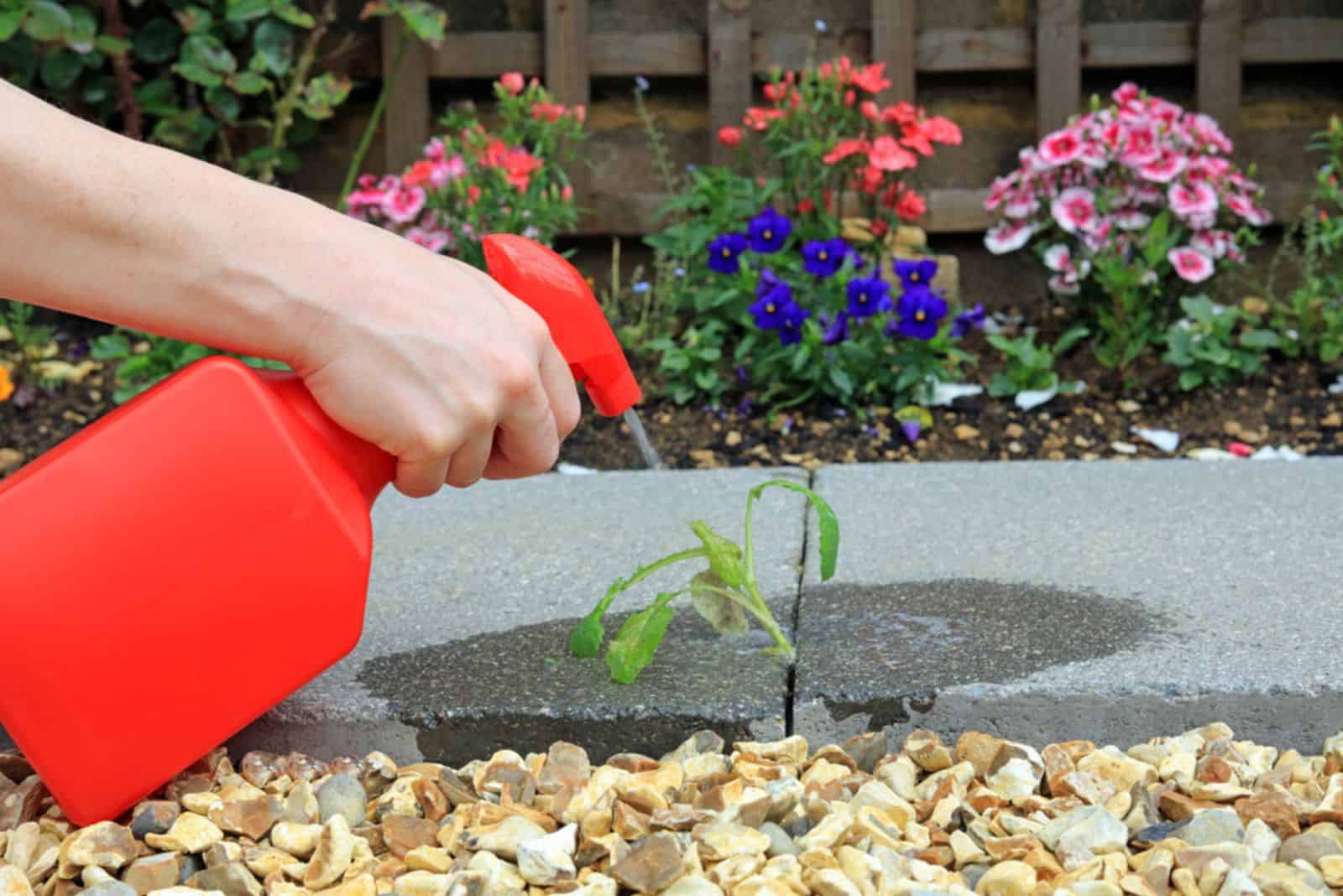
Weeds are every gardener’s nightmare. They can quickly take over our gardens, stealing nutrients and choking out our beloved plants. And getting rid of them can be rather difficult!
Instead of buying expensive commercial weed killers, many gardeners went the other way and started using vinegar to kill weeds. But, can this common household ingredient serve as a natural weed killer? Is it effective?
In this article, we will uncover the truth behind the vinegar-weed connection so stay tuned!
Does Vinegar Kill Weeds?
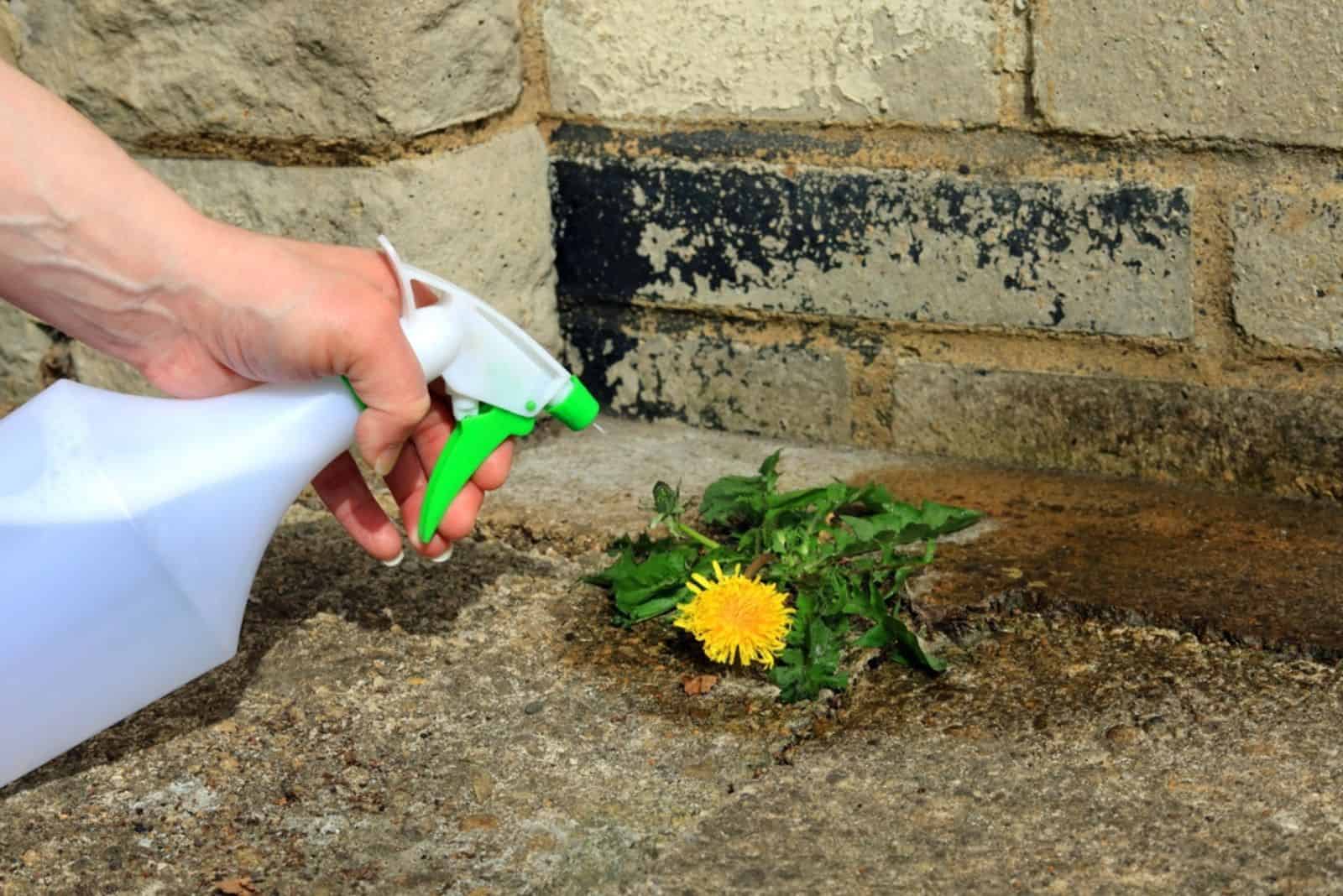
Yes, vinegar does an amazing job killing weeds – they can be gone in less than 24 hours!
Vinegar contains acetic acid that dries out the leaves, which causes damage to the weed’s cellular structure. This eventually leads to the death of the weed [1].
It is an effective natural herbicide that can be used to remove weeds from gravel, lawns, gardens, pathways, etc.
The thing about vinegar is that it destroys everything that crosses its path – while it will successfully get rid of weeds, it can also harm other plants that come in contact with it.
So, you have to be extremely careful when applying vinegar to your garden!
It’s also worth mentioning that vinegar works best on young and small weeds. The acid kills the leaves before reaching the root system, which is why they can quickly grow back.
Mature or deep-rooted weeds may require repeated applications or other weed control methods for effective eradication. Additionally, vinegar is most effective when used on sunny days, as sunlight enhances its weed-killing properties.
Besides using herbicides, you can also grow some weed-killing plants or ground cover plants to prevent weed growth.
How To Use Vinegar To Kill Weeds
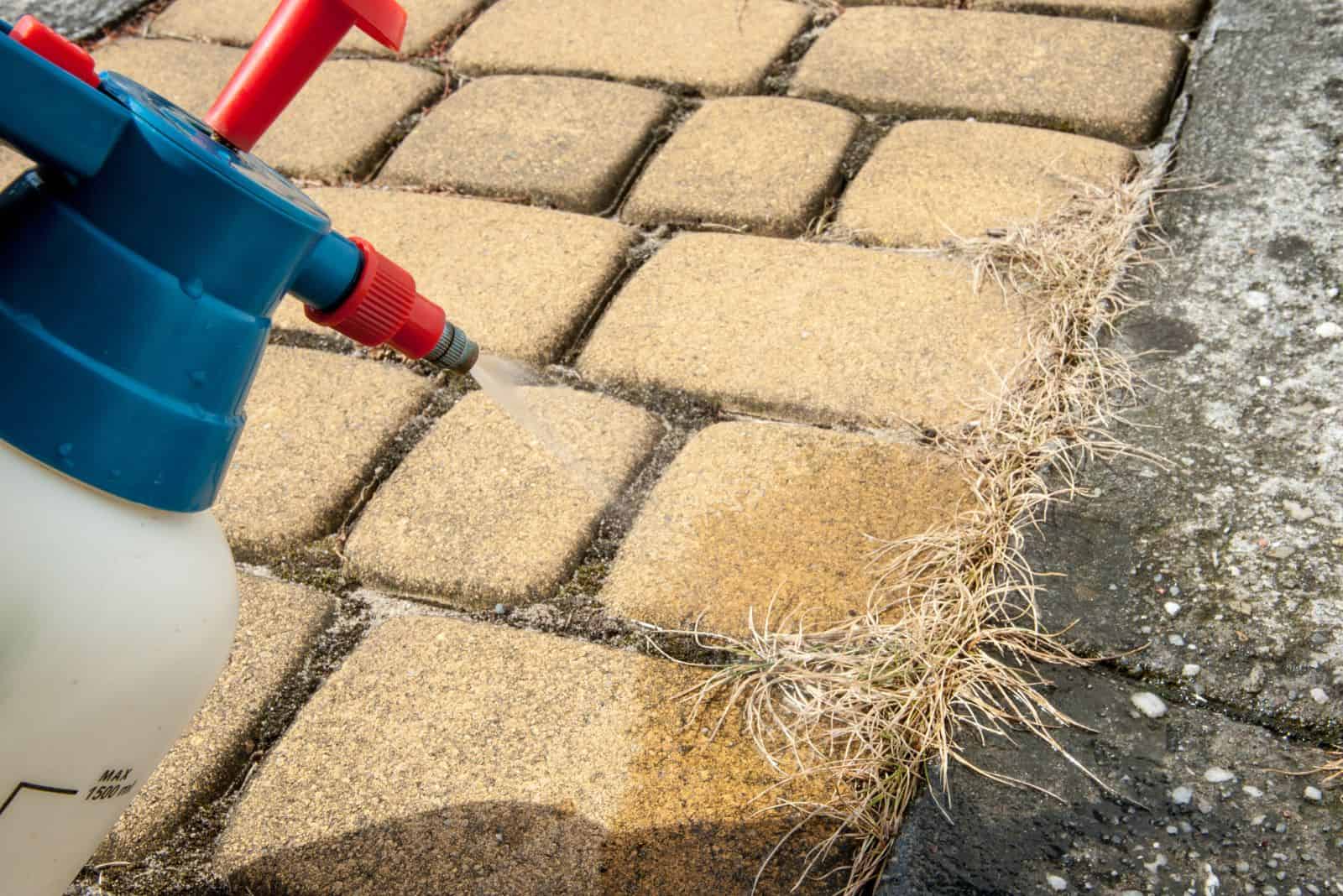
Now you are probably wondering how to make weed killer with vinegar – it is actually quite easy!
When using vinegar as a weed killer, it’s recommended to use distilled white vinegar with a high acetic acid concentration (around 5-10%). Household vinegar, which typically has a lower acetic acid content, may not be as effective.
For more effective results, especially when using vinegar for mature and deep-rooted weeds, it is recommended to add salt.
You can combine 1 gallon of vinegar and 1 cup of table salt. The roots of the plant will be dried by the salt. You can also add 1 tablespoon of regular dish soap to the solution to increase potency.
Surfactants found in dish soap remove any protective layer on the leaves, which is why this solution should be applied to the weeds’ leaves and not the soil.
It is important to note that you have to be extremely careful when using salt-and-vinegar weed killer because too much salt can completely ruin the soil and make it uninhabitable.
This is why we only focus on the weeds’ leaves – if you apply the mixture to the surrounding soil, the acid and salt will be absorbed and they will ruin the nutrients that are necessary for your plants.
It means that weeds won’t grow in that area, but no other plant will be able to grow either. If you are struggling with this issue, I would suggest hand picking or hiring professional help.
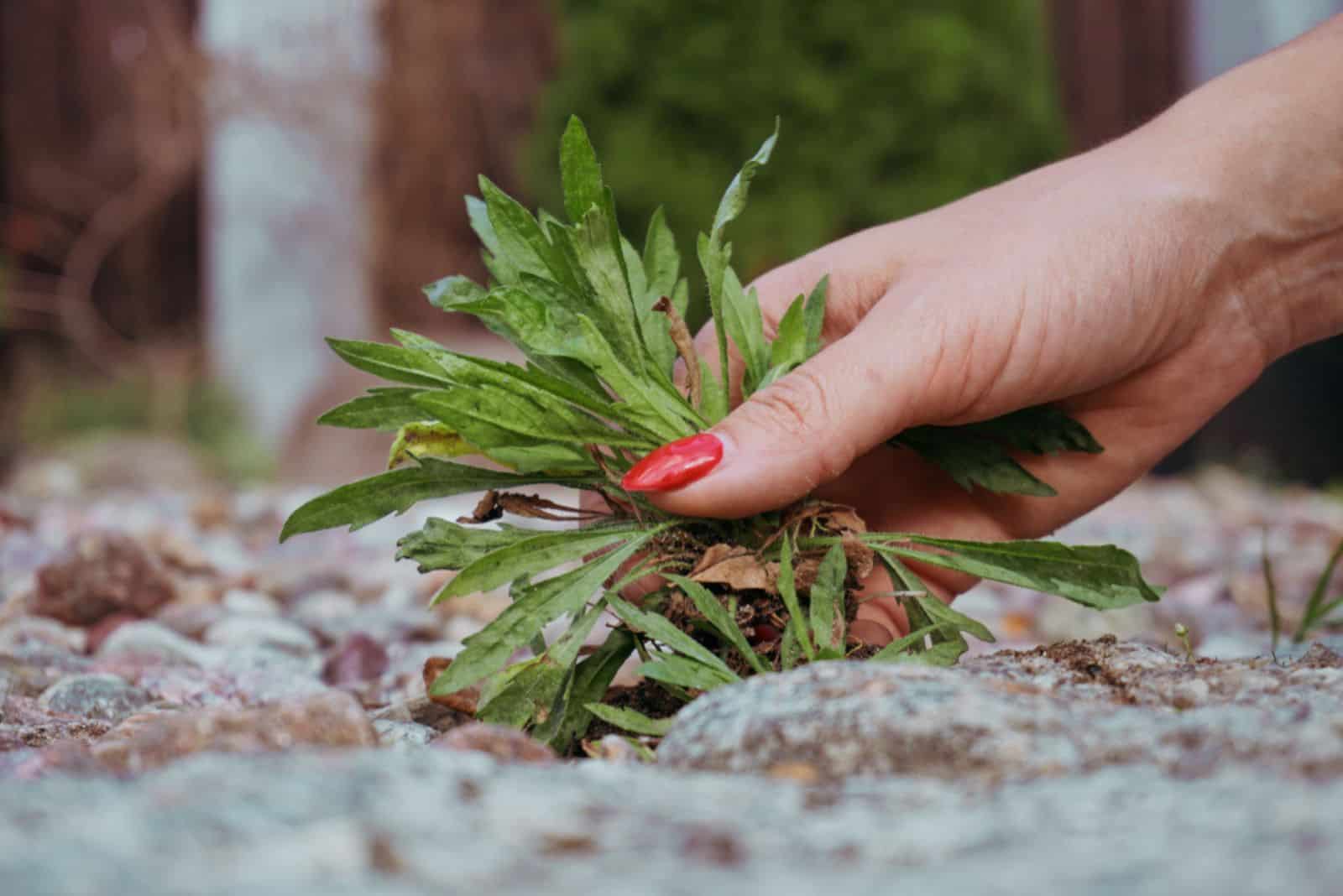
I would also recommend you use a spray bottle with a nozzle which can be adjusted to spray a continuous stream instead of mist.
This is because spraying can spread to other areas easily. Besides nearby plants, materials like concrete and metal can be discolored or eroded by this solution as well.
So, the best thing to do is pour vinegar weed killer in a spray bottle and set a stream rather than broad spray so that the solution goes exactly where you want it to go. Also, don’t do this on a windy day as the wind can spread the solution all over your garden!
As we mentioned earlier, you should spray your weeds on a sunny day. If you do it when it rains, then the solution will simply be washed away.
In addition, the acid’s efficacy will be increased by the sun and heat. The salt’s dehydrating properties will be improved as well.
While many commercial weed killers make the claim that they will remain on weeds even in the presence of rain, a vinegar-and-salt solution lacks the additional chemicals and will be washed away by rain. Reapply the solution in case it rains.
Remember that vinegar won’t get rid of weeds permanently as it doesn’t reach the roots of the weeds. Mixing it with salts increases its efficacy, but the plant will most likely die before the solution reaches the roots, which is why it may regrow again.
Even with commercial weed killers, the soil is full of weed seeds that can only be completely eliminated by soaking the soil in the solution, which damages the soil’s ability to support new plant growth.
Grow weed-killing plants, apply natural herbicide, hand pick weeds, and your garden will be good to go!
Meta: If you are wondering if vinegar kills weeds, check out this article and find out the answer. See how to properly apply vinegar in your garden, too!
References
1. Meron Tesfay, et al. “Efficacy of vinegar and common salt as organic herbicides.” Journal of Environmental Science and Health, Part B 46.4 (2011): 336-341.

